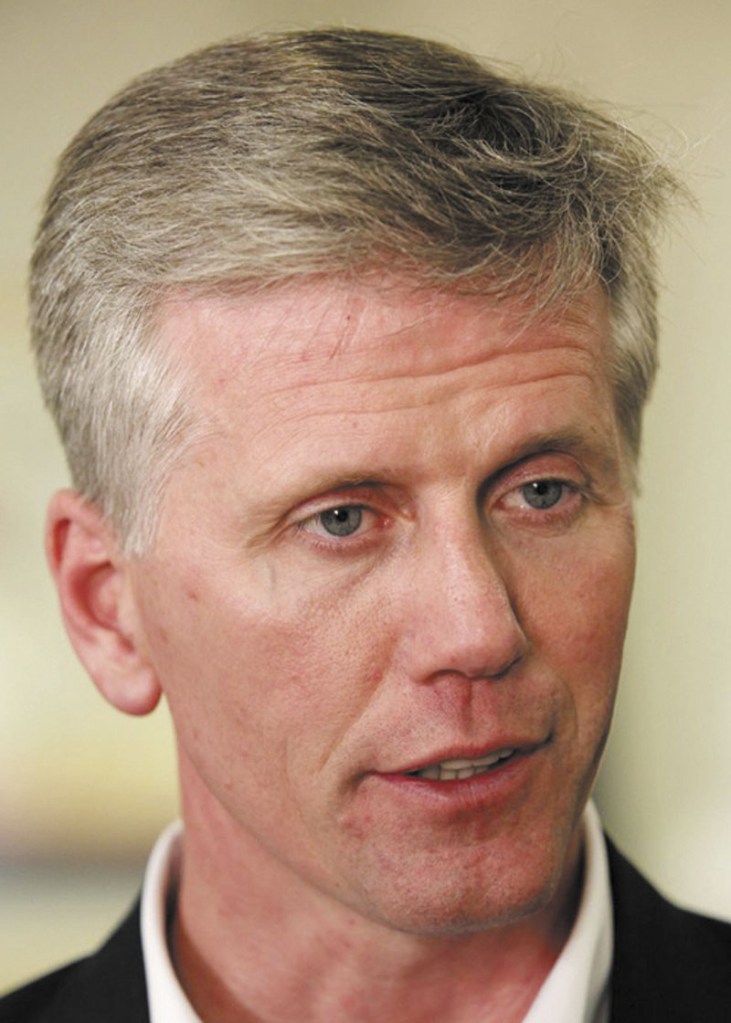Proponents and opponents of same-sex marriage shared a rare moment Thursday after the secretary of state released the final wording of the November ballot question for the same-sex marriage citizens initiative.
They agreed on something.
Advocates on both sides of the issue said Secretary of State Charlie E. Summers Jr. crafted a ballot question that is fair and, more importantly, easy to understand.
The Nov. 6 question will read: “Do you want to allow the State of Maine to issue marriage licenses to same-sex couples?”
“We are pleased,” said Matt McTighe, campaign manager for Mainers United for Marriage, shortly after Summers’ office issued a news release. “It is simple, and it is clear wording.”
Pastor Bob Emrich, who chairs the opposition campaign, also praised Summers for the question’s simplicity. “He has taken a very complex issue and made it simple,” he said.
The campaigns say the real war of words will take place over the next several months as both camps try to win voters to their cause.
“The battle will be about substance and the fact that this is a social experiment,” Emrich said.
The fight, McTighe said in a prepared statement, will be about allowing “marriage licenses for loving, committed same-sex couples” while “protecting religious freedom.”
Opponents of same-sex marriage led a successful referendum campaign in 2009 to overturn a law that would have allowed same-sex marriages. The final margin was 53 percent to 47 percent.
In March, Summers certified that supporters of same-sex marriage had gathered enough signatures to put the ballot question before voters.
In June, Summers proposed wording for the ballot question that said: “Do you want to allow same-sex couples to marry?”
That triggered a public comment period that ended July 16.
Summers, who was interviewed Thursday during a ribbon-cutting ceremony at a new Augusta hotel, said his office received more than 600 comments.
“One side wanted more information. One side wanted more but different information,” Summers said. “I just want to make sure everybody understands what they’re voting on.”
Summers added that his wording on the ballot question is aimed at a seventh-grade reading level.
Summers’ original proposal proved to be controversial, with gay-marriage advocates saying it failed to mention an important part of the proposed law: that clergy would not have to perform same-sex marriages.
Opponents said the question should go further, saying something to the effect that passage would redefine traditional marriage.
Same-sex marriage supporters said the new wording makes it clear that the proposed law is about civil marriage and that no church or religious institution can be sued for refusing to recognize or perform a marriage.
They opposed the first question advanced by Summers, saying it was incomplete and inaccurate.
“We are pleased that the secretary of state took into account our concerns and has changed the question to more accurately reflect the contents of the citizens initiative,” McTighe said in a statement.
“It’s acceptable,” said Emrich, who serves as pastor at Emmanuel Bible Baptist Church in Plymouth. “It’s good middle-of-the-road language.”
Emrich said he was pleased the new question does not include “misleading” language about protections for religious liberties.
If the citizens initiative is passed by voters in November, members of the clergy will not be obligated to perform a same-sex marriage. Also, any clergy or church that refuses to perform or host a same-sex wedding cannot be sued.
McTighe said the proposed law protects religious freedoms.
“The new (ballot) question makes it clear that the proposed law is about civil marriage and that no church or religious institution can be sued for refusing to recognize or perform a marriage that goes against its beliefs,” he said.
But Emrich said he has concerns about the law as proposed. While it might protect a minister from being sued, he wonders what would happen if a church organist or a wedding photographer refused to participate in a same-sex wedding because it went against their religious beliefs.
Rodney Mondor of Portland was listening to his car radio when news about Summers’ ballot language was announced. He pulled over to the side of the road.
“I was quite pleased with the results. He needed to keep it simple and to make it easy for voters to understand. It’s a step in the right direction,” said Mondor, who has been with his partner, Ray Dumont, for 13 years.
If the initiative passes in November, Mondor and Dumont plan to hold a big outdoor wedding next year.
“I am keeping my fingers crossed,” Mondor said of the referendum question’s chance of passage. “I feel good about it.”
Staff Writer Michael Shepherd contributed to this story.
Staff Writer Dennis Hoey can be contacted at 791-6365 or at:
dhoey@pressherald.com
Send questions/comments to the editors.




Success. Please wait for the page to reload. If the page does not reload within 5 seconds, please refresh the page.
Enter your email and password to access comments.
Hi, to comment on stories you must . This profile is in addition to your subscription and website login.
Already have a commenting profile? .
Invalid username/password.
Please check your email to confirm and complete your registration.
Only subscribers are eligible to post comments. Please subscribe or login first for digital access. Here’s why.
Use the form below to reset your password. When you've submitted your account email, we will send an email with a reset code.